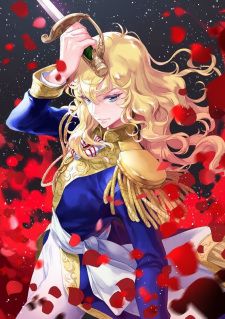|
If you liked
Tsubasa: RESERVoir CHRoNiCLE
|
...then you might like
xxxHOLiC
|
"xxxHOLiC" and "Tsubasa: RESERVoir CHRoNiCLE" are interconnected manga series created by the group CLAMP. In "xxxHOLiC," Yuuko Ichihara, a witch, speaks about the duality of desires, encouraging perseverance. In "Tsubasa: RESERVoir CHRoNiCLE," the idea is emphasized that even without the ability to change the past, it is possible to create a better future. Both series delve into profound themes such as the importance of choices and the pursuit of change amidst challenges. Although they are independent stories, it is recommended to read both series together due to their connection. Important events and characters from one series appear in the other, complementing each other. Reading them together provides a more complete understanding of the shared universe and the motivations of the characters. "xxxHOLiC": "Desires can be dangerous. They lead us down unknown paths. But no matter how perilous it may be, we should never give up on our desires." "Tsubasa: RESERVoir CHRoNiCLE": "Even if you cannot change the past, you can create a better future."
|
If you liked
X
|
...then you might like
Tokyo Babylon
|
Clamp is a renowned group of mangaka known for their visually stunning works, complex narratives, and captivating characters. Two of their most popular creations are "X/1999" and "Tokyo Babylon", which share a connected universe and delve into deep themes of fate, tragedy, and suffering. "X/1999" and "Tokyo Babylon" are definitely worth exploring if you enjoyed one of them. It is highly recommended to start with "Tokyo Babylon". In "X/1999", a battle between the Dragons of Earth and Dragons of Heaven questions the nature of humanity and the balance between good and evil. In "Tokyo Babylon", we follow Subaru Sumeragi, an exorcist who faces supernatural cases while uncovering hidden secrets within Japanese society. Both manga are visually stunning and feature engaging characters, offering an emotionally intense and thought-provoking experience.
|
If you liked
Versailles no Bara
|
...then you might like
Ginga Eiyuu Densetsu
|
"Ginga Eiyuu Densetsu" and "Versailles no Bara" are two anime series with a focus on political and social conflicts. "Ginga Eiyuu Densetsu" is set in a distant future and explores the space war between the Galactic Empire and the Free Planets Alliance, while "Versailles no Bara" takes place during the French Revolution in an alternative version of history. Both series delve into themes such as power, politics, and personal identity, offering a profound analysis of the implications of these fictional historical events In a profound philosophical narrative, Ginga Eiyuu Densetsu, also known as Legend of the Galactic Heroes, empathetically and critically examines the political landscape. Through two contrasting poles represented by the Galactic Empire and the Free Planets Alliance, the series offers a comprehensive self-critique of both ideologies. By exposing the strengths and weaknesses of each side, Ginga Eiyuu Densetsu provides an introspective analysis of the political system, prompting reflections on the limits of leadership, the corruption of power, and the need for a balance between authority and freedom. By confronting the inherent flaws within the political sphere, the work urges us to question and rethink established paradigms, and thus, seek more just and efficient forms of governance. "The ends justify the means." This famous quote by Machiavelli reflects a pragmatic approach to power and politics. In Ginga Eiyuu Densetsu, we see how the characters are willing to do whatever it takes to achieve their goals and ensure the survival of their respective political systems. The series examines the ethical implications of this mindset, questioning whether the pursuit of power can be justified by the end results. Versailles no Bara, also known as The Rose of Versailles, offers an empathetic and critical analysis of the political landscape. With a self-critical approach to the aristocratic system and social structure of its time, the series exposes injustices, inequalities, and oppressions experienced by the characters. By challenging gender norms and questioning social constructs, Versailles no Bara provokes deep reflection on the responsibility of leaders, the need for fair governance, and the pursuit of social transformation. "In the halls of Versailles, where opulence reigns, Versailles no Bara unveils the hidden shadows of the aristocracy and ignites the flame of revolt, unleashing a quest for equality and justice."






